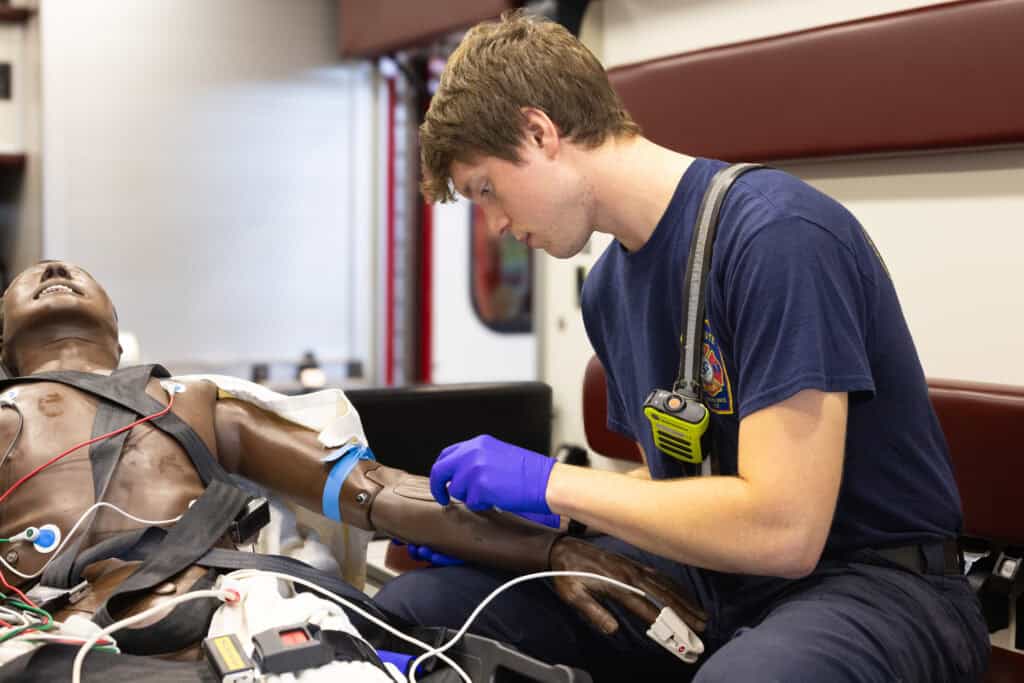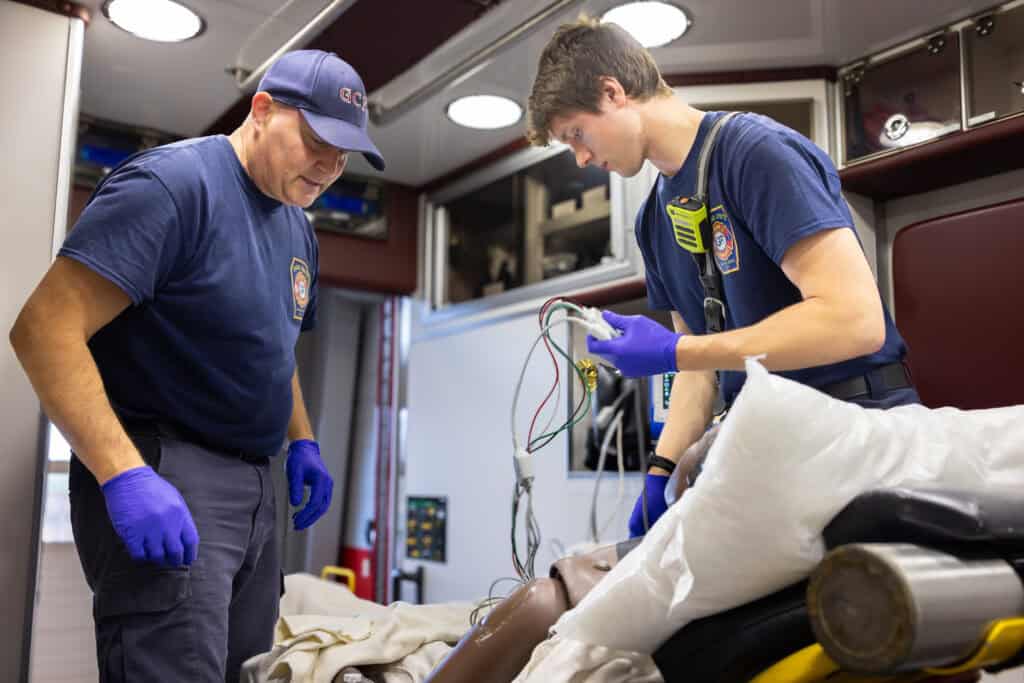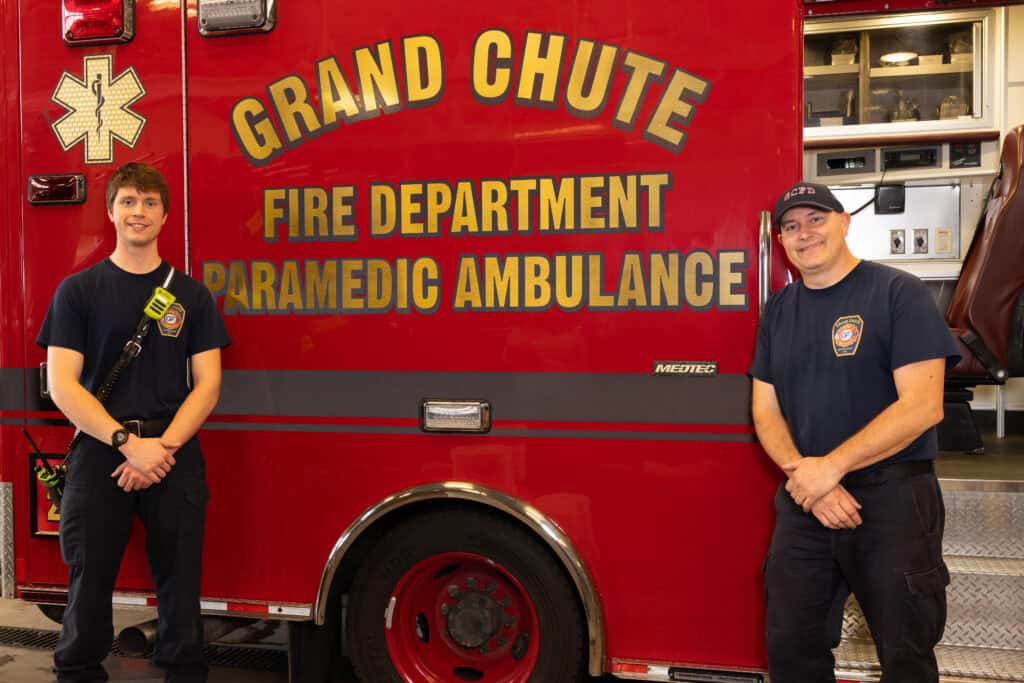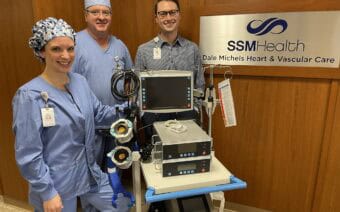
August 25, 2025
FOX VALLEY – In communities struggling to fill crucial first responder positions, Dean of Public Safety John Sorenson said Fox Valley Technical College (FVTC) is stepping up to make emergency response training and education more accessible.
“There has been a shortage and strong need for paramedics in our community,” he said.
Through the college’s mission of “serving our students, partnerships and community [by] contributing to the workforce,” Sorenson said a new type of FVTC paramedic training program was born two years ago.
“We had conversations as to how we can help them out and what that looks like, in addition to the paramedic class that we have and conduct on site at our public safety training center,” he said.

According to FVTC’s website (fvtc.edu), following a “rigorous accreditation process,” the college was able to establish three satellite sites – at Grand Chute Fire Department, Gold Cross Ambulance Service, Inc. and Waushara County Emergency Medical Services – where employed paramedics-in-training could receive their education by the same adjunct professors who teach the students on campus.
“Our adjuncts [are] actually employees of both the Fox Valley Technical College and Grand Chute Fire Department and Gold Cross and Waushara County EMS,” he said. “So, that has really helped us serve our students and keep in close communication as we offer this [satellite] paramedic program.”
Full-time student employees
To establish the satellite training sites, Sorenson said each location had to be individually accredited by CoAEMSP – the Committee on Accreditation of Educational Programs for the Emergency Medical Services Professions.
“We had to go through an accreditation process with each of these satellite sites before we could offer this [program] at their locations,” he said.
The sites’ continued accreditations, Sorenson said, rely on FVTC to maintain the level and type of training offered both at the satellite locations and at its on-campus program.
“Essentially, it needs to be the same type of training that we provide here at the Public Safety Training Center,” he said.
Sorenson said each program participant is both a student at FVTC and an employee of their respective satellite training location.
“They’re considered one of our Fox Valley Technical College students, and it is unique [because] they’re fully employed [by] their employer and able to continue that employment,” he said.
Though providing the training outside of the classroom, Sorenson said the adjunct professors follow the same, nationally accredited curriculum that’s based both on Wisconsin State law and personal community experience.
“So, Gold Cross runs that class and does it at a different time than our classes at the Public Safety Training Center, but it meets the same rigors [and follows] the same curriculum,” he said. “It’s really a unique partnership in that we’re helping the student, partnering with their employer and then meeting the community’s needs.”

FVTC’s website further notes that during the program’s flagship class at the Grand Chute Fire Department, “firefighters attend[ed] class during a portion of their 48-hour shift but remain[ed] nimble enough to respond to emergencies as needed.”
Those being trained at the satellite sites, Sorenson said, are typically already employed prior to applying to FVTC’s program.
“They have to follow the same process to get entry into the program,” he said, “but they were already employees… and they were EMTs looking to be paramedics.”
‘Full-fledged paramedics’
Sorenson said the satellite classes run concurrently with the on-campus training program.
“It’s a one-year tech diploma,” he said. “It’s approximately 38 credits that the student is [completing] over that one year.”
Because the satellite sites are accredited the same as FVTC’s on-campus program, Sorenson said student employees can become licensed paramedics by taking and passing the National Registry of Emergency Medical Technician-Paramedic exams.
Across the three classes the satellite sites have graduated since the very first at GCFD in 2023, Sorenson said students have achieved a 100% pass rate to become “full-fledged paramedics.”
“I think the proof is in the pudding,” he said.
FVTC’s third year of the satellite paramedic training program, Sorenson said, will commence this fall – with classes being taught at Gold Cross Ambulance Service, Inc.
Because the satellite sites’ accreditation rolls over every year – as long as FVTC maintains the necessary standards – Sorenson said they can dip in and out of each location depending on where there is a need.
“Waushara County [EMS], we met their need, [but] Gold Cross still has a shortage,” he said. “So, we’re going to do another satellite class with them.”
Though, at times, the job can be mentally and physically challenging, Sorenson said being a paramedic is a well-paying job in the emergency response industry.
“Five years after graduating, we see that, typically, a paramedic is making around $74,000,” he said. “What a great career for our students – not only in that aspect, but… they’re truly serving our community [as well, and] are helping people, typically, at their worst times.”
For more information on the satellite or on-site paramedic training programs – as well as FVTC’s other public safety degrees – visit its previously mentioned website.
 From the Minor Leagues in Appleton to the big stage
From the Minor Leagues in Appleton to the big stage UWL secures funding to complete Prairie Springs Science Center
UWL secures funding to complete Prairie Springs Science Center







